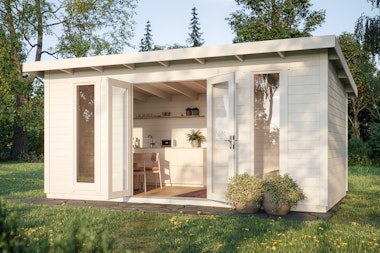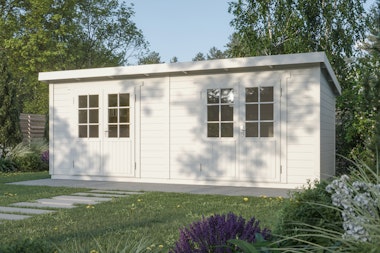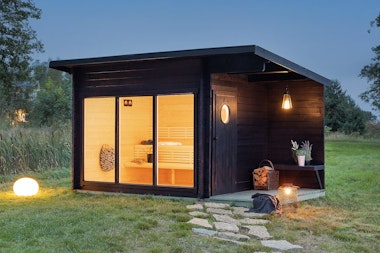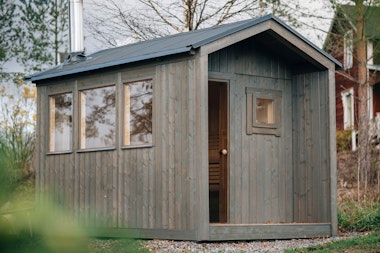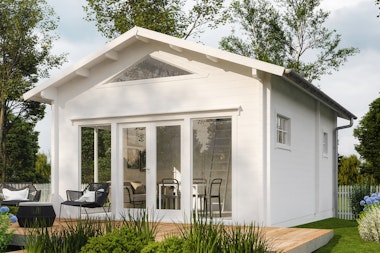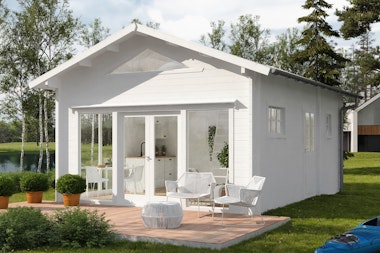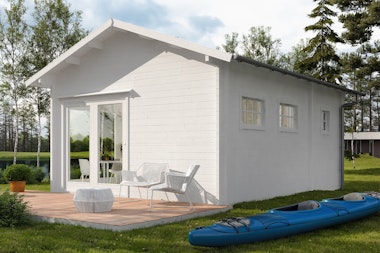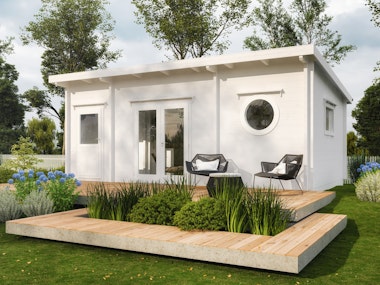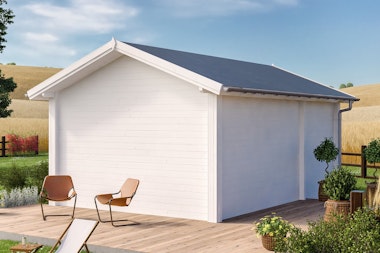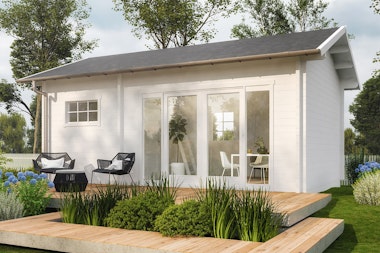
Painting the Facade - Tips for painting your wooden house
Andreas Lindberg / 2 min reading / Surface treatment
When you think about building a house, it's probably mostly the construction process you consider. But the fact is that painting the facade properly is at least as important. Untreated wood decomposes, cracks and turns grey in no time at all. The biggest culprit in this crime is neither rain nor snow, but the sun's UV rays, with the result that you have to repaint your house. That's what Stefan Wahlberg, technical consultant at AkzoNobel, the paint group with well-known brands such as Nordsjö, Cuprinol and Hammerite, explained to us.
What colour should you choose for a planed spruce timber house from Polhus?
An unpigmented (colourless) oil lasts only a few years before it's time to repaint. A pigmented oil lasts 3-4 years and with a wood glaze you can wait 5-6 years before it's time to paint again. A so-called block colour wood stain, which is a mixture of glaze and a solid paint, lasts 10-12 years before the house needs to be repainted, but best of all is a full acrylic paint, which protects the facade for 15-16 years.

Stefan Wahlberg, technical consultant at AkzoNobel
If you're going to paint your wooden house, you need to do some preparation.
When painting for the first time, the wood needs to be treated. It's especially important to saturate the cut surfaces at the ends of the wood, but Stefan Wahlberg even recommends treating all the wood surfaces with a water-based impregnation oil when painting a wooden house. This provides more effective protection against algae and mould. Next the wood should be primed (this applies if you’re going to paint your house with an opaque paint) and you should paint it twice with the topcoat/glaze to finish. When repainting, some extra work is required. Previously painted surfaces need to be washed and rinsed off and any loose paint and grey wood must be scraped/sanded off. Any wooden surfaces must be treated and primed (this applies if you’re going to paint the house with an opaque paint) before you finish painting the final coat. When painting, it's important to follow the manufacturer's recommendations if you want a beautiful and durable result.
Make sure the wood is dry before painting.
Wood shouldn't have a moisture content higher than 16%. The wood in Polhus kits is dry on delivery, but if it's rained for the whole construction process, then you must let the wood dry first. If you paint when the surface is too wet, there's a risk that the paint won’t adhere and there will be so-called blistering when you encapsulate the moisture. A good way to check the moisture content is to buy a moisture meter. The cheapest ones can be found for under 20 euros or pounds. It's a bargain, if you consider what the house and paint cost.
Don't be afraid of repainting the house yourself.
The colour expert Stefan Wahlberg thinks non-professional building enthusiasts can definitely paint their houses themselves, on the outside and inside. But it's important to make sure you follow the manufacturer's recommendations. Oil, prime and paint however many times specified for optimal results. It might cost a bit more and take a bit longer than you thought, but in the end it pays to be careful.
"When painting, it's important to follow the manufacturer's recommendations for a beautiful and durable result."
Stefan Wahlberg, technical consultat at AkzoNobel

The best way to get started - our guide!
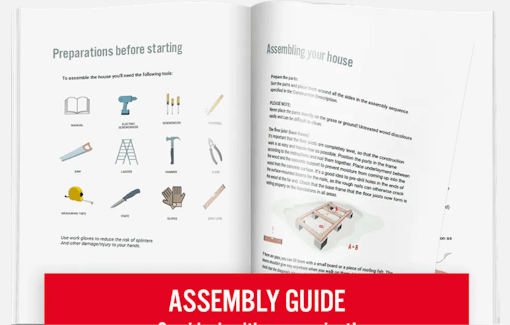
The best way to get started - our guide!
The assembly guide contains valuable tips and advice from our construction experts. A good base and a manual for those who plan to assemble the house themselves. We walk you through what’s important to consider before starting construction, the foundation options our experts recommend, and how the assembly works.
Read all about this and much more in our guide. We will send the assembly guide free of charge to your email. Good luck with your project!


